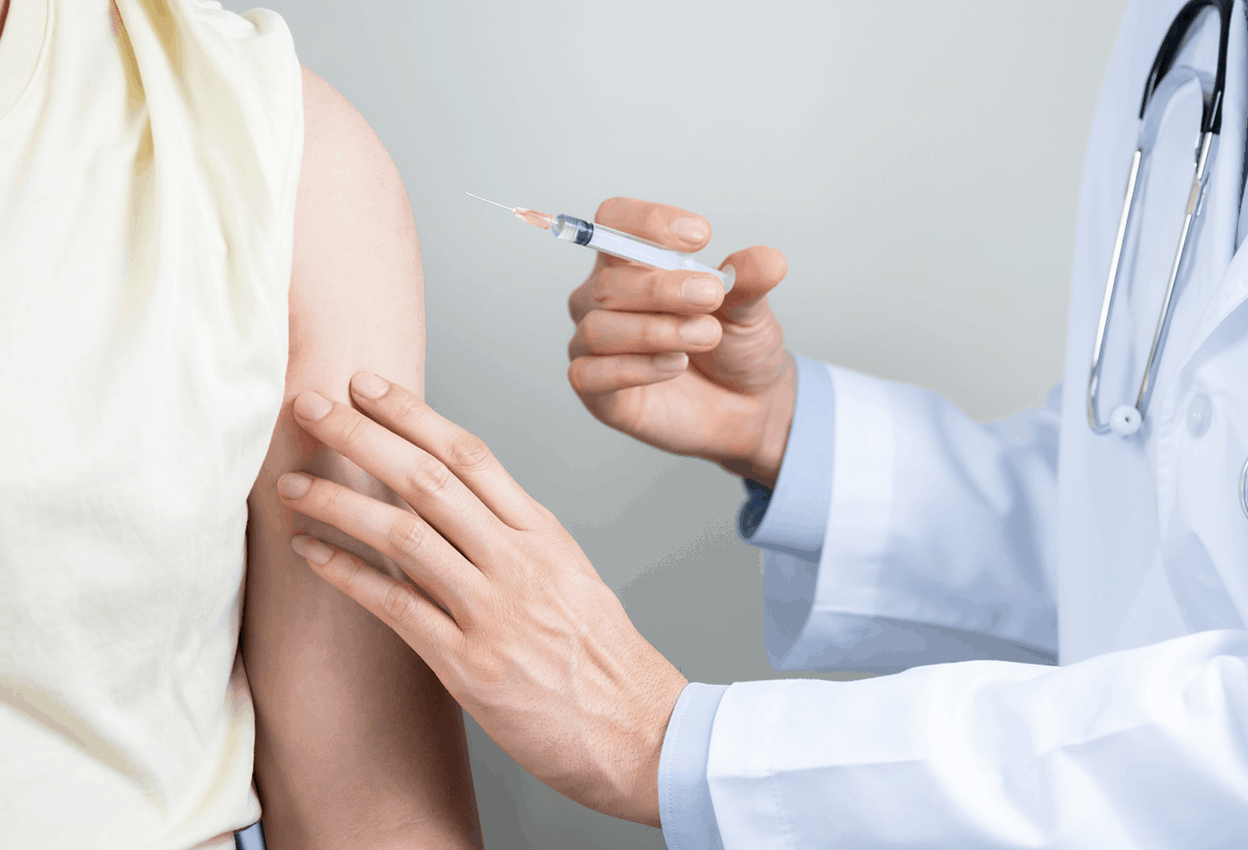Allergy Shots
Allergies can leave you feeling rundown and tired, disrupting your daily life and routine. Allergy shots are one of the most effective methods for managing allergies.
As one of the leading experts in allergy diagnosis and care in Pasadena, CA, Dr. Farnam can help you breathe easier by administering allergy shots to bring much-needed relief.
Allergy Shots
Allergies can leave you feeling rundown and tired, disrupting your daily life and routine. Allergy shots are one of the most effective methods for managing allergies.
As one of the leading experts in allergy diagnosis and care in Pasadena, CA, Dr. Farnam can help you breathe easier by administering allergy shots to bring much-needed relief.

What Do Allergy Shots Do?
Allergy shots are a form of treatment called immunotherapy, which is a preventive treatment for allergic reactions to substances, or allergens, such as grass and flower pollens or dust mites. Allergy shots, also known as subcutaneous immunotherapy (SCIT), are the most commonly used and most effective form of allergy immunotherapy, which involves injecting gradually increased doses of the allergen. Allergy shots contain just enough allergens to stimulate your immune system, but not enough to trigger a full allergic reaction. The incremental increases of the allergen cause the immune system to become less sensitive to the substance.
How Often are Allergy Shots Given?
Allergy shots are regular injections given over a period of time, generally around three to five years, or until your body works up a more natural immunity to the affecting allergen. Over this time, Dr. Farnam increases the dose of allergens in each of your allergy shots. This helps get your body used to the allergens, a process called desensitization, causing your allergy symptoms to diminish over time.


What Types of Allergens Can Allergy Shots Treat?
Allergy shots can be used to control symptoms triggered by seasonal allergies, indoor allergens, and insect stings. Dr. Farnam will work with you to identify which allergens are affecting you, and therefore which form of immunotherapy will work best. If you suffer from seasonal allergic asthma or hay fever symptoms, you may be allergic to pollen released by trees, grasses or weeds. If you have year-round symptoms, you may be sensitive to indoor allergens, such as dust mites, cockroaches, mold, or dander from pets such as cats or dogs. Allergic reactions to insect stings can be triggered by bees, wasps, hornets or yellow jackets. Please note that allergy shots cannot treat food allergies or chronic hives.
Are Allergy Shots My Only Option?
No, there are oral options for treating some allergies called sublingual immunotherapy, which involves placing a tablet or a liquid containing the allergen underneath the tongue daily. Much like allergy shots, this will slowly build an immunity to the allergen over time. However, oral treatments are only effective for grass and weed allergies, whereas allergy shots build immunity to far more allergens such as insect stings. Dr. Franam can discuss the best treatment plan for your allergies, as well as working within your comfort level for the type of treatment prescribed.


Are There Any Risks with Allergy Shots?
With all medical treatments there can be some side effects. Since allergy shots are injections of small doses of the allergens affecting you, there is the possibility you may experience adverse reactions. But, the reactions will be far milder than an actual allergic reaction since the dose will be very small. Dr. Farnam will discuss potential reactions with you prior to any injections, to ensure your comfort and safety. For instance, you may experience a local reaction that involves redness, swelling or irritation at the injection site. These typically begin within a few hours of the injection and clear up soon after. Or a more serious systemic reaction could include sneezing, nasal congestion or hives; and an even more-severe reaction may include throat swelling, wheezing or chest tightness. Anaphylaxis is a rare life-threatening reaction to allergy shots. It can cause low blood pressure and difficulty breathing. Anaphylaxis often begins within 30 minutes of the injection, but may start later than that. If you experience anything above a mild reaction, please contact Dr. Farnam or seek out emergency medical care.

